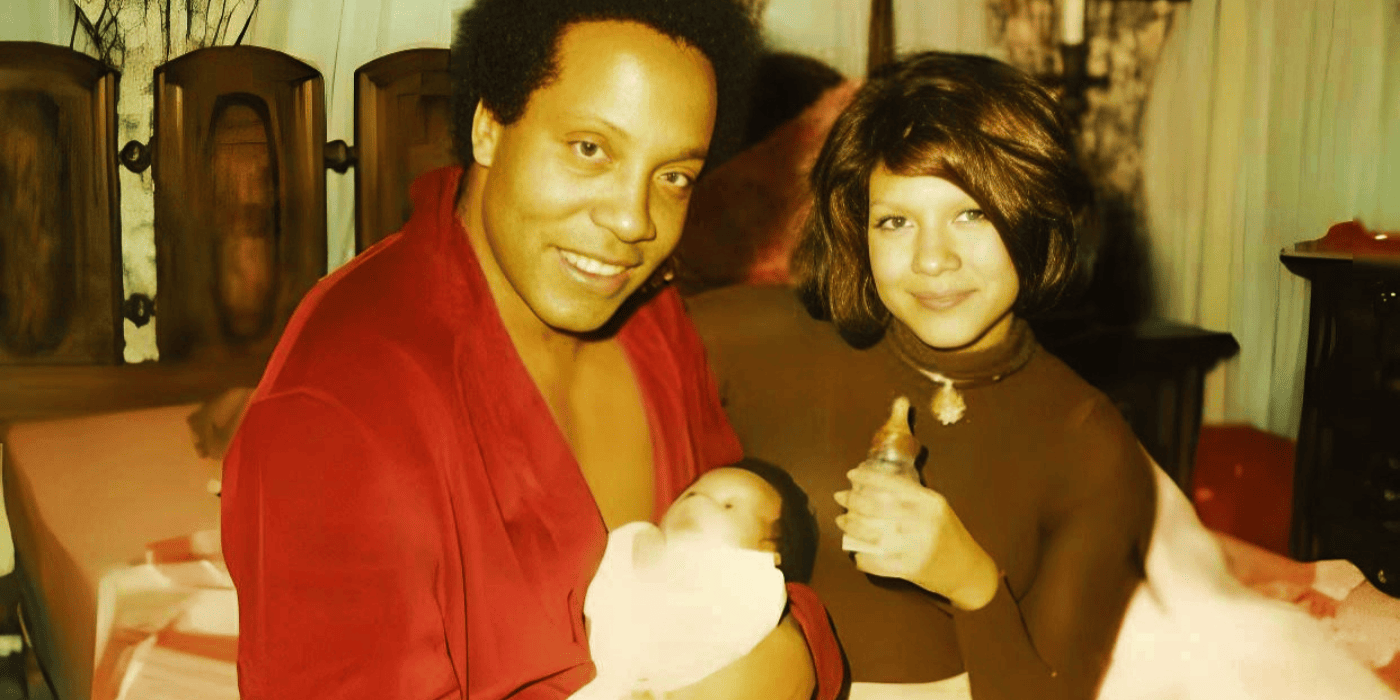What Nationality Is Julianna Farrait? Unpacking Her Background
Have you ever wondered about the roots of public figures, maybe where they come from, or what country they belong to? It’s a pretty common thought, isn't it? People often ask, "what nationality is Julianna Farrait?" because her story, in some ways, is quite interesting, and her background connects to significant historical moments. Knowing someone's nationality helps us understand a bit about their legal ties to a place, and sometimes, even their personal story. So, let’s talk about Julianna Farrait and what that means for her identity.
When we talk about nationality, it's a bit more than just where someone was born. It’s about a legal bond with a state, you see. This bond gives someone certain rights and also responsibilities within that country. For Julianna Farrait, understanding her nationality helps us appreciate her connection to a specific part of the world, and how her life has unfolded. It’s a question many people have, and we’re here to clear it up.
Julianna Farrait’s story, as a matter of fact, is tied to a place with a very unique history and relationship with the United States. This can make questions about her nationality a little more complex than they might seem at first glance. We’ll look at what nationality truly means, how it's decided, and then apply that to Julianna Farrait’s situation. It’s pretty important to get these distinctions right, you know, especially when discussing someone’s legal status.
- Was Jeffrey Epstein A Mossad Agent.linkmaz
- Burger King Plane Guy Name.linkmaz
- Tim Miller Husband.linkmaz
- 1filmy4wapin Your Ultimate Destination For Bollywood Entertainment.linkmaz
- Mkvmoviespoint Bollywood Movies Your Ultimate Destination For Indian Cinema.linkmaz
Table of Contents
- Julianna Farrait: A Brief Look at Her Life
- Personal Details and Bio Data
- Understanding Nationality: What It Really Means
- Nationality Versus Citizenship: A Key Difference
- Julianna Farrait’s Nationality Explained
- Demonyms and Identity: More Than Just a Word
- Frequently Asked Questions About Julianna Farrait's Nationality
Julianna Farrait: A Brief Look at Her Life
Julianna Farrait is known to many as the spouse of Oscar López Rivera, a prominent figure in the Puerto Rican independence movement. Her life, in a way, has been linked to this cause, bringing her into the public eye. She has, you know, stood by her husband through many challenges, including his long period of incarceration. Her public presence often revolves around advocacy for Puerto Rican self-determination and the release of political prisoners.
Her story is one of dedication and, for many, a symbol of resilience. While not a public figure in the same way as an entertainer or politician, her connection to a significant political movement makes her background, including her nationality, a topic of interest. People often want to know more about those connected to important historical events, and Julianna Farrait is, in some respects, one such person.
Her involvement in the independence movement means her identity is very much tied to Puerto Rico. This isn't just about where she lives, but also about a deep cultural and political connection. It's really interesting how personal lives can become so intertwined with broader national aspirations, isn't it?
- Subhashree Sahu Mms Video Leaked Scandal Exposes Intimate Moments.linkmaz
- Silent Manga Omnibus A Comprehensive Guide To The Art Of Wordless Storytelling.linkmaz
- Xnzx.linkmaz
- Aishah Sofey Leaked.linkmaz
- Tamilblasters New Link 2024 Everything You Need To Know.linkmaz
Personal Details and Bio Data
| Detail | Information |
|---|---|
| Full Name | Julianna Farrait |
| Known For | Spouse of Oscar López Rivera, advocate for Puerto Rican independence |
| Place of Birth | Likely Puerto Rico (specific city not widely publicized) |
| Current Residence | Puerto Rico |
| Spouse | Oscar López Rivera |
| Nationality | Puerto Rican (by heritage/birth), U.S. Citizen (by legal status) |
Understanding Nationality: What It Really Means
So, let's get down to what nationality actually means. Based on what we know, nationality is a legal bond with a state. It's the official right to belong to a particular country. Think of it as a legal status, really, that connects you to a nation. This connection is defined by the legal boundaries of a state, and it comes with certain rights, responsibilities, and protections granted by the government.
A nation, in this context, can be seen as a group of people organized in one country, under one legal jurisdiction, or simply a group of people who are united. Nationality, then, is your legal status of belonging to that particular group and its country. It's not just about where you were born, though birth is one way to get it. You can also acquire nationality through a process called naturalization, you know, which is when someone becomes a citizen of a country they weren't born in.
It's very important to understand that nationality is about legal ties to a state. It gives you that formal connection. This is a bit different from other ways we talk about identity, like race or ethnicity. Those concepts are about shared ancestry, culture, or traditions. Nationality, however, is all about the law and your place within a country's legal system. It's quite a specific term, as a matter of fact.
Nationality Versus Citizenship: A Key Difference
People often get mixed up between citizenship and nationality, and that's completely fair, they seem very similar. But there's a pretty important distinction. Nationality is the legal status of belonging to a nation, as we just discussed. It's that bond with a state, granting you rights and duties. Citizenship, on the other hand, is a bit more about the full set of rights and responsibilities that come with being a member of a country, particularly the right to vote and hold public office.
While all citizens of a country are its nationals, not all nationals are necessarily full citizens. This is where things can get a little nuanced, especially with places like Puerto Rico. For instance, people from North America might be nationals of Canada or Mexico, and also citizens, but there are situations where nationality might exist without full citizenship rights. It's a subtle but significant difference in legal terms, you know.
To put it simply, citizenship often includes the political rights that come with belonging to a country. Nationality is the broader legal tie. For many countries, the terms are used pretty much interchangeably, but in some unique situations, like that of Puerto Rico, the difference becomes quite apparent. It's something that, you know, really makes you think about legal definitions.
Julianna Farrait’s Nationality Explained
Now, let's apply these ideas to Julianna Farrait. Julianna Farrait is, in a very real sense, Puerto Rican. This means she identifies with the people, culture, and traditions of Puerto Rico. For many, being Puerto Rican is a strong cultural and ethnic identity. However, when we talk about her nationality as a legal bond with a state, the situation becomes a little more specific due to Puerto Rico's unique status.
Puerto Rico is a territory of the United States. This means that individuals born in Puerto Rico are, by law, U.S. citizens. So, while Julianna Farrait identifies as Puerto Rican, her legal nationality is that of a U.S. citizen. This is a classic example where ethnicity and cultural identity, which is Puerto Rican, differs from legal nationality, which is U.S. citizen. It’s a pretty common point of confusion, actually, for people not familiar with the island’s relationship with the U.S.
Therefore, when someone asks "what nationality is Julianna Farrait?", the most accurate answer, from a legal standpoint, is that she is a U.S. citizen. Her heritage, her cultural roots, and her personal identity are deeply Puerto Rican. This duality is something many people from Puerto Rico experience, you know, having a strong national character tied to the island while legally belonging to the United States. It's a unique aspect of their identity.
This situation highlights how nationality is truly defined by the legal boundaries of a state. Even if a group of people feel united as a nation, their legal status depends on the formal recognition and jurisdiction of a government. Julianna Farrait's case, in a way, perfectly illustrates this distinction. She carries the identity of her homeland, while also holding the legal papers of the larger country it is tied to. It’s a very interesting point to consider, really.
Demonyms and Identity: More Than Just a Word
Speaking of identity, it's worth touching on demonyms. A demonym is an adjective or a noun used to refer to a person from a particular place or nation. For example, a person from North America is, well, North American. For Puerto Rico, the demonym is "Puerto Rican." This word is used for people from the island, and it also describes their ethnicity and cultural background. So, when we say Julianna Farrait is Puerto Rican, we're using a demonym that speaks to her cultural identity and origin.
Demonyms can sometimes be confused with nationality, but they're not always the same thing. Someone might be "New Yorker" (a demonym for someone from New York City) but their nationality is American. In Julianna Farrait's case, "Puerto Rican" acts as both a demonym and a strong indicator of her ethnic and cultural identity. Her legal nationality, however, remains U.S. citizen.
It’s important to remember that in discussions about identity, the terms race, ethnicity, and nationality are often used interchangeably, but they each have distinct meanings. Race often relates to physical traits, ethnicity to shared culture and ancestry, and nationality, as we've explored, to a legal bond with a state. Julianna Farrait's story helps us see these differences quite clearly, doesn't it? She is ethnically Puerto Rican, and legally a U.S. citizen, and the demonym for her people is Puerto Rican. It's a fascinating way to look at how we describe who we are and where we belong.
This whole idea of multiple nationalities or a nationality that doesn't quite align with a deeply felt cultural identity is something many people around the world experience. It shows how rich and varied human identity can be, and how legal definitions play a part in that. To learn more about how different countries define belonging, you might want to look into international law on nationality, for example, The UNHCR's work on statelessness.
Frequently Asked Questions About Julianna Farrait's Nationality
Is Julianna Farrait a U.S. citizen?
Yes, she is. Because Puerto Rico is a territory of the United States, individuals born there, including Julianna Farrait, are considered U.S. citizens by birth. This means she holds the legal status of a U.S. citizen, granting her the rights and responsibilities that come with it.
What is the difference between being Puerto Rican and a U.S. citizen?
Being Puerto Rican typically refers to one's cultural and ethnic identity, rooted in the history, traditions, and people of Puerto Rico. It's about heritage. Being a U.S. citizen, however, is a legal status. While many Puerto Ricans are U.S. citizens, the term "Puerto Rican" speaks to their cultural background, while "U.S. citizen" speaks to their official legal bond with the United States. It's a pretty important distinction, you know.
How is nationality generally determined?
Nationality is usually determined by one of two main ways: by birth or by naturalization. By birth means you gain nationality based on where you were born (jus soli) or the nationality of your parents (jus sanguinis). Naturalization is the legal process by which a non-citizen becomes a citizen of a country. Nationality is defined as the legal status of belonging to a particular nation, which is a group of people organized in one country, under one legal jurisdiction, or as a group of people who are united. Learn more about nationality definitions on our site, and link to this page understanding legal status.
- Jedi Maine Cabin Masters Wife Died The Story Behind The Tragic Loss.linkmaz
- Hair Shampoo For Hair Loss.linkmaz
- Sone 436 Video A Comprehensive Overview Of The Viral Sensation.linkmaz
- Freddie Highmore Wife.linkmaz
- Young Brigitte Macron A Closer Look At Francersquos First Lady And Her Influence.linkmaz

Julianna Farrait’s Life Changed after a Chance Encounter on an Airplane

Julianna Farrait: Who Is Frank Lucas’ Wife? - TVovermind

Julianna Farrait: The Life, Legacy, and Impact of Frank Lucas's Wife